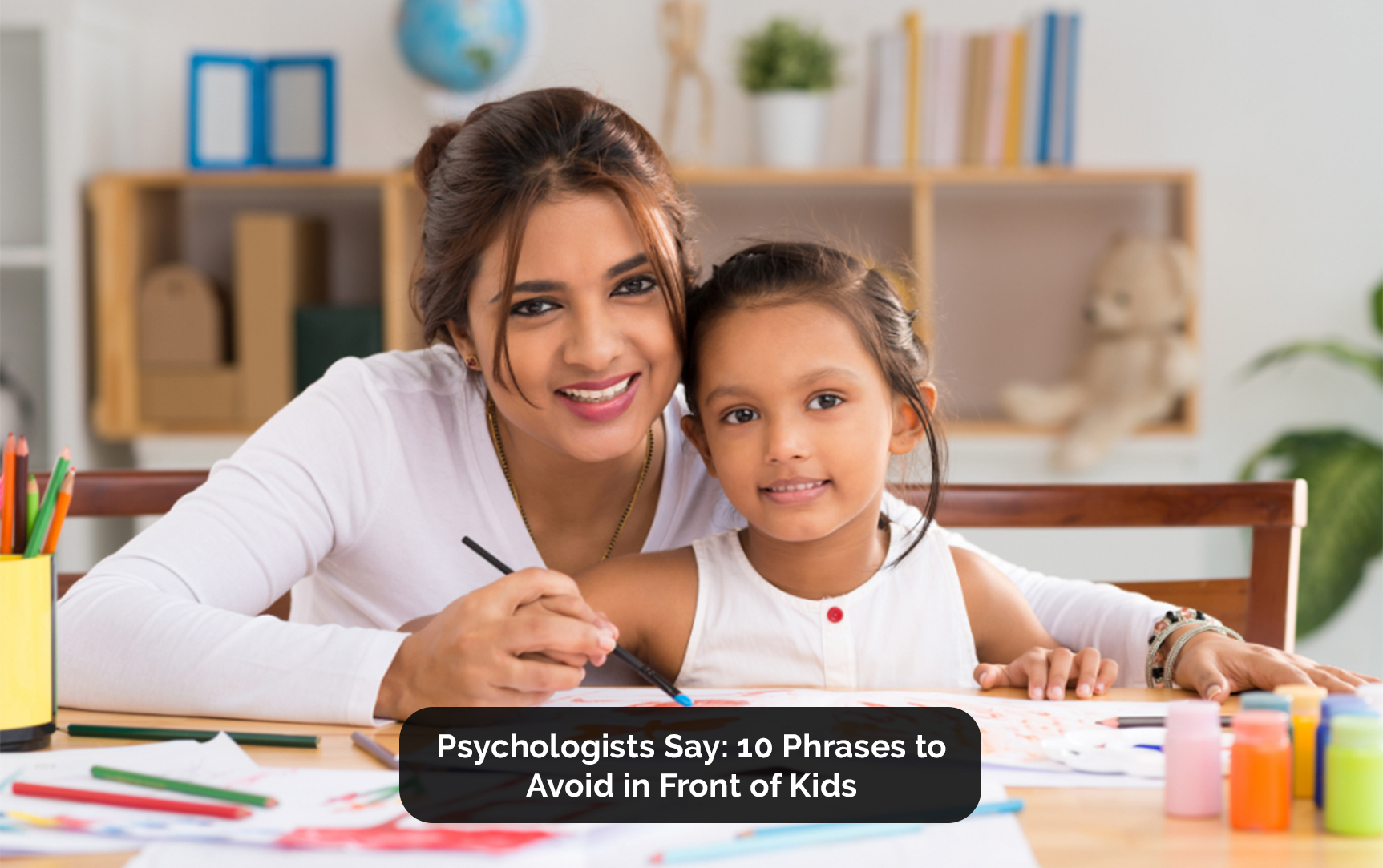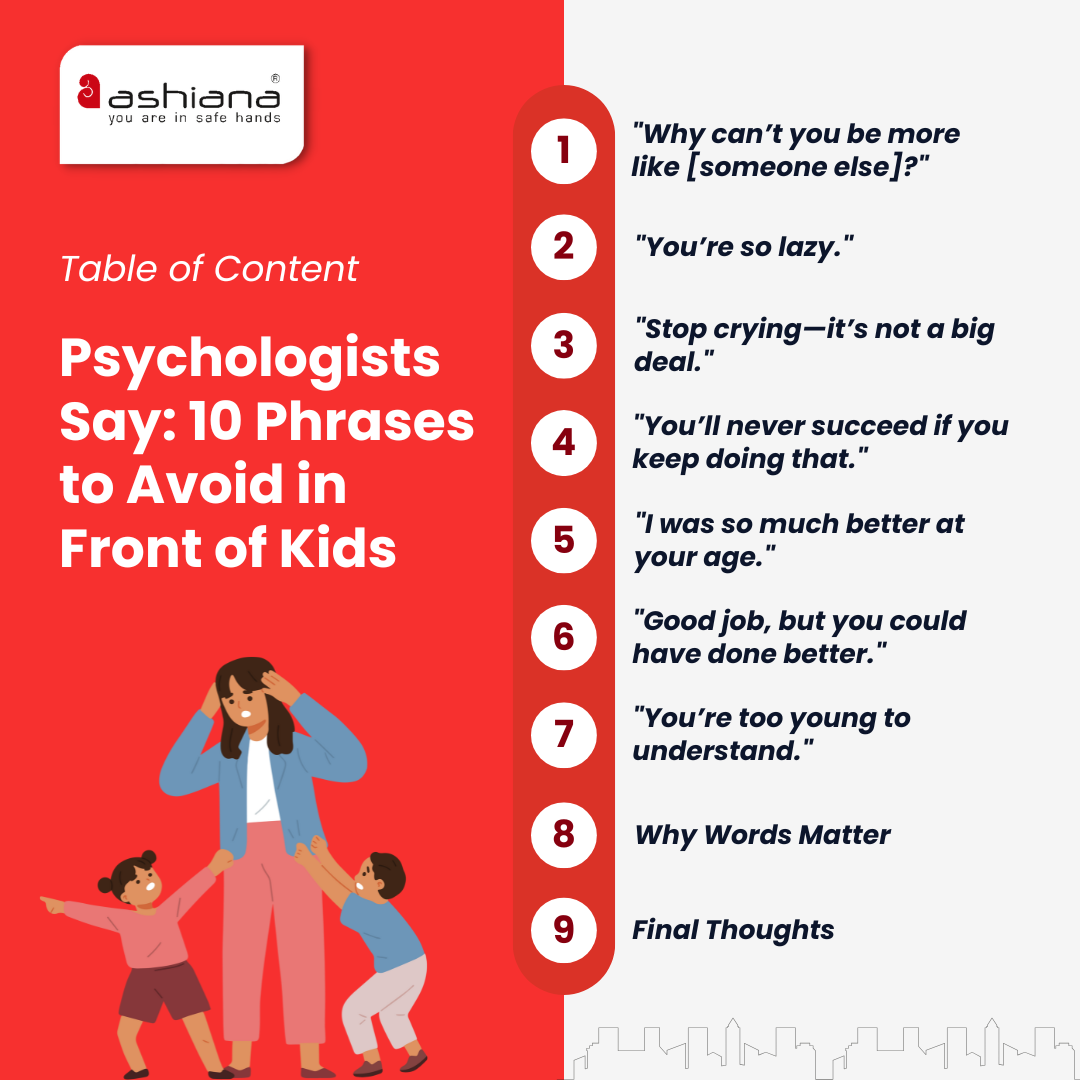

Certain phrases can damage a child’s emotional development, self-esteem, and social skills. Avoiding these phrases helps children build confidence, emotional intelligence, and a positive self-image.
Negative phrases can lead to long-term emotional struggles such as self-doubt, insecurity, and difficulty in expressing emotions. Over time, children may struggle with relationships and developing a healthy sense of identity.
Parents can reframe their words by using positive and supportive language. For example, instead of saying “You’re so lazy,” parents could say, “I know you’re capable of great things. Let’s work on this together,” to encourage growth and self-belief.
Ashiana, Ashiana Housing build homes. Homes surrounded by vast green spaces and fresh breeze. Homes cocooned in secured gated complexes. Homes where futures are forged and there are opportunities to grow. And Homes in environments brimming with healthy activity, trust and respect. At heart, we build communities with care.
Other posts by Ashiana
Join 1000+ of fellow readers. Get expert real estate knowledge straight to your inbox absolutely free. Just enter your email address below.